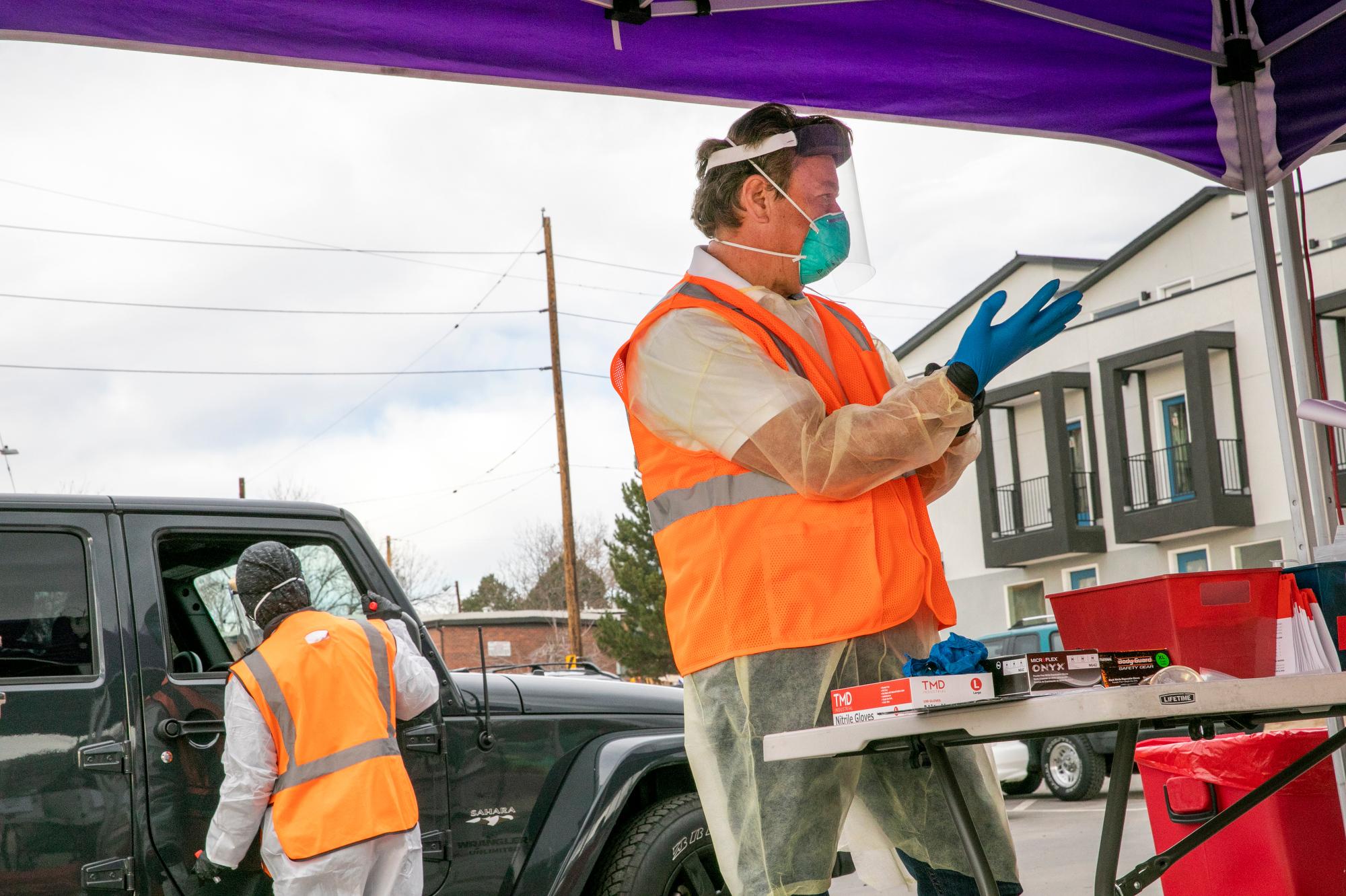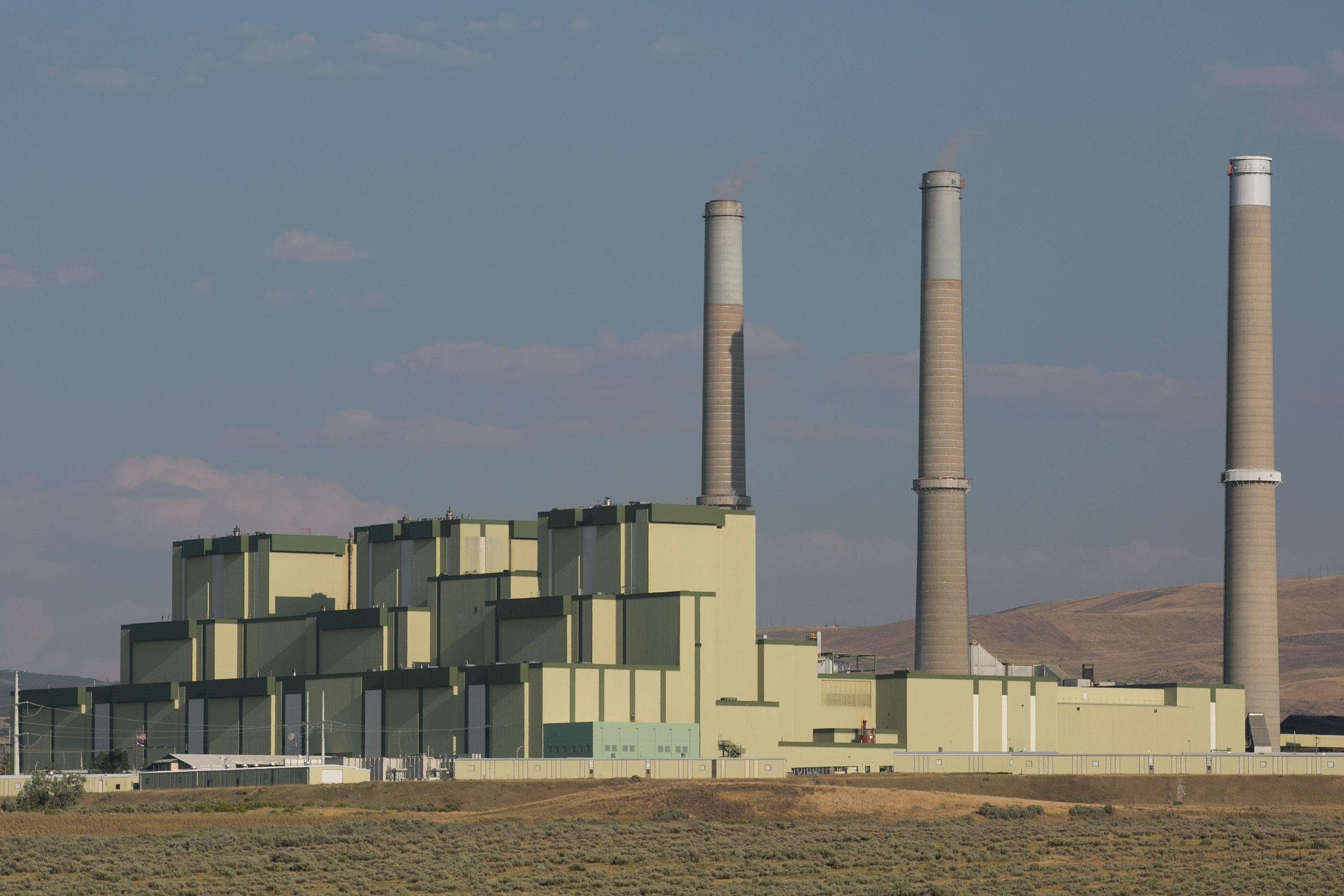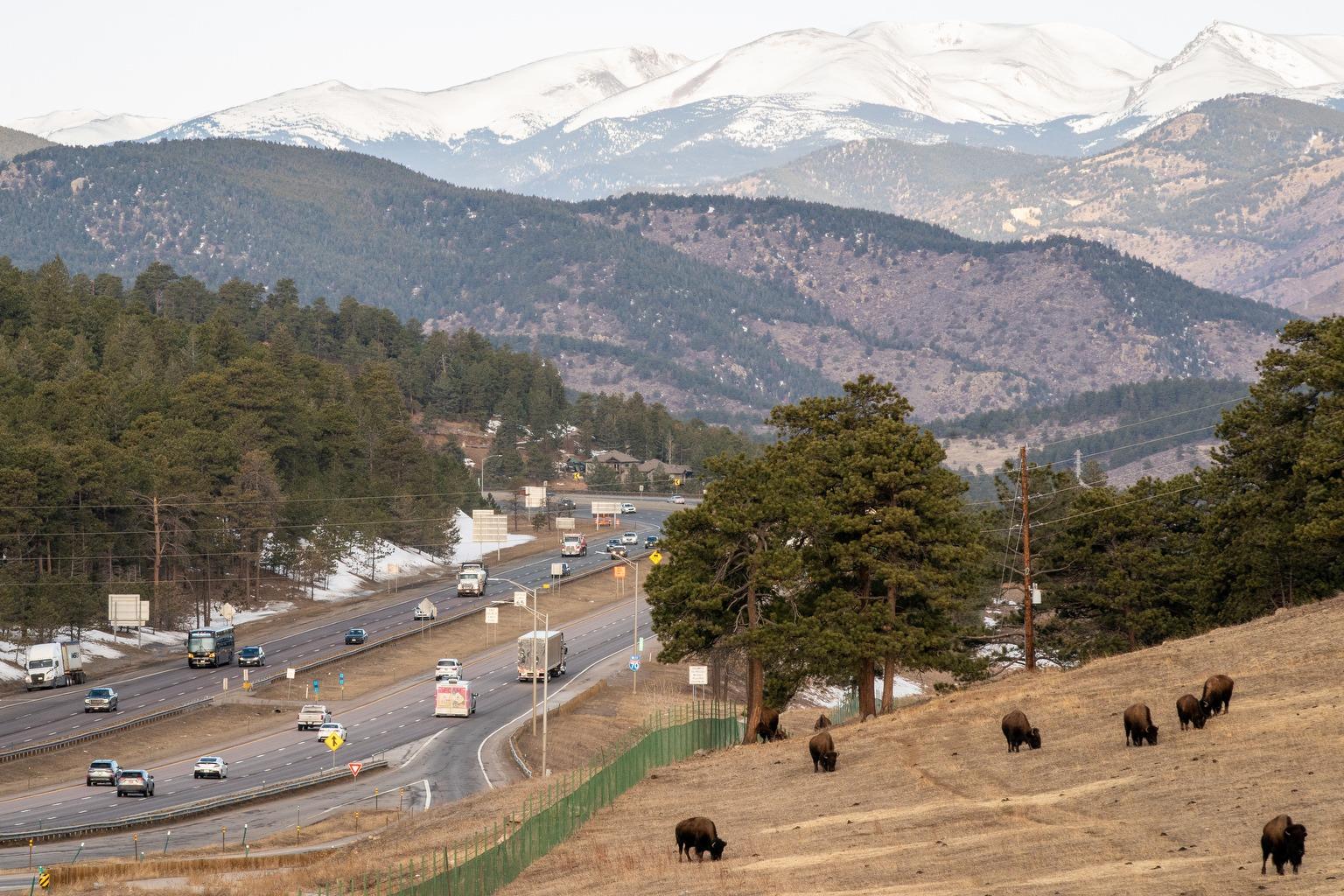
Gov. Jared Polis sounded the alarm Friday about the toll COVID-19 is taking on hospitals scrambling to respond to the surging pandemic.
Polis said full hospital capacity had been reached in Mesa County on the state’s western slope and in Weld County in northeast Colorado, where hospitals report only three available intensive care beds and no non-ICU beds.
“This is not at no availability statewide or the Denver Metro area,” Polis said. “But what is happening in a Mesa and Weld absolutely can happen elsewhere.”
With COVID-19 cases, hospitalizations and deaths rising regionally and nationally, Polis said he didn’t expect Colorado could count on much help with tight staffing levels for frontline providers.
“We talk a lot about beds appropriately,” he said. “But you also need staff. You need both sides to be able to deal with this, and having all the beds in the world without the nurses and doctors and medical professionals, it doesn't get you a better likelihood of successful medical clinical outcomes that you'd expect.”
COVID-19 cases and hospitalizations rise as Thanksgiving travel begins
The governor’s remarks at a briefing for reporters come at a pivotal point in the pandemic.
Daily deaths in Colorado are trending upward to levels not seen since the early days of the crisis. The state is seeing double-digit figures nearly every day. Thanksgiving is less than one week away and the state and its hospitals are at a disconcerting level of COVID-19 risk.
Hospitalizations for patients confirmed with COVID-19 hit 1,564 Friday, up 64 from the day before. That number was 1,183 last week and a month ago it was 381.
One potentially positive sign is that the percentage of COVID-19 tests returning positive results averaged over seven days has shown early signs of flattening. It’s been above 12 percent for several days, and fell to 12.5 percent in data released Friday — the fourth day out of five that metric has fallen, even if only slightly. Case numbers continue to remain high, with 5,143 cases reported Friday, just down from 5,500 the day before.
But if that reduction in positive tests becomes a trend rather than a blip, it will still take time for the reduction to show up in hospitals, where staffing is under intense pressure and 34 percent of facilities anticipate staffing shortages within the next week.
“Big picture: Hospitals are incredibly busy,” said Julie Lonborg, spokeswoman with the Colorado Hospital Association. “There is ample, but decreasing capacity across the system in the state.”
- Denver Broncos Will End In-Person Attendance For Fans After This Sunday’s Game
- As Pandemic Worsens, Mask Rules In Jails Vary From County To County
- The Biggest Bug For Coronavirus Exposure Apps? The People Using Them
- Service Workers And Business Owners Grapple With More Economic Hardship As Colorado Counties Shut Down (Again)
But she said she was optimistic Coloradans understand the gravity of the situation and are responding accordingly.
“We’re hopeful they will do the right thing,” she said. If they don’t many plans are in place to prepare for the surge, but she acknowledged hospitals could face the grim reality of moving to the worst-case emergency posture, called “crisis standards of care.”
In that scenario, doctors would use a scoring system to determine who receives scarce resources, whether it may be medications or a ventilator.
Coronavirus rages on in Mesa and Pueblo counties
On Wednesday, Mesa County health officials warned that the county was out of intensive care beds. They urged residents to take the pandemic seriously. The county can scale up to 99 intensive care beds across its hospitals, said Jeff Kuhr, the executive director of Mesa County Public Health. More than 40 of ICU beds are currently filled by COVID patients, while the rest are more typical intensive needs cases.
On Wednesday, one or two ICU cases en route to the VA hospital in Grand Junction were redirected to another facility. That’s because the facility had reached maximum capacity, according to local reports.
Earlier this week, Polis said Parkview Medical Center in Pueblo also hit capacity, with 100 of the beds there filled by COVID-19 patients. A local Pueblo TV station confirmed with the hospital that they hit capacity Monday morning, however, a spokesperson says they did not have more than 100 COVID patients. Parkview, working with UCHealth, transferred multiple patients to different locations. As of Tuesday afternoon, the medical center was not at capacity and was still accepting COVID-19 patients, according to KKTV in Pueblo.
Parkview Medical Center has been seeing an increase in patients since the pandemic started in April.
Pueblo County's move to a more restrictive level on the color-coded dial this week is in "direct relation to the fact that [the] numbers are really skyrocketing," said Pueblo Public Health Director Randy Evetts.
According to Evetts, the county has 1,706 confirmed, positive cases of COVID-19 per 100,000 people over a two-week period. Evetts said that number is expected to double over the next 13 days. The two-week average positivity rate is 16 percent. The county currently has 62 active outbreaks, with 55 additional potential outbreaks being investigated by the Colorado Department of Public Health and Environment.
Evetts said both he and Sandeep Vijan, Parkview's chief medical officer, are concerned about increased hospitalizations.
"If the hospitals are busy caring for COVID, if there are no hospital beds, and I can't transfer you to another hospital because those beds are full, what happens to you in this community?" Vijan said. "Resources are finite. We are going to do the best we can to care for the community, but what happens when we are truly full?"
Vijan said with the expectation that cases will double, about 20 percent of those patients will require hospitalization. He said the hospital has already started canceling in-patient surgeries and triaging resources to manage the surge.
"I don't want to be in a position where we have to make life or death decisions for people," Vijan said. "That's not where we want to go. We want to get to a place where we can comfortably manage everyone."









